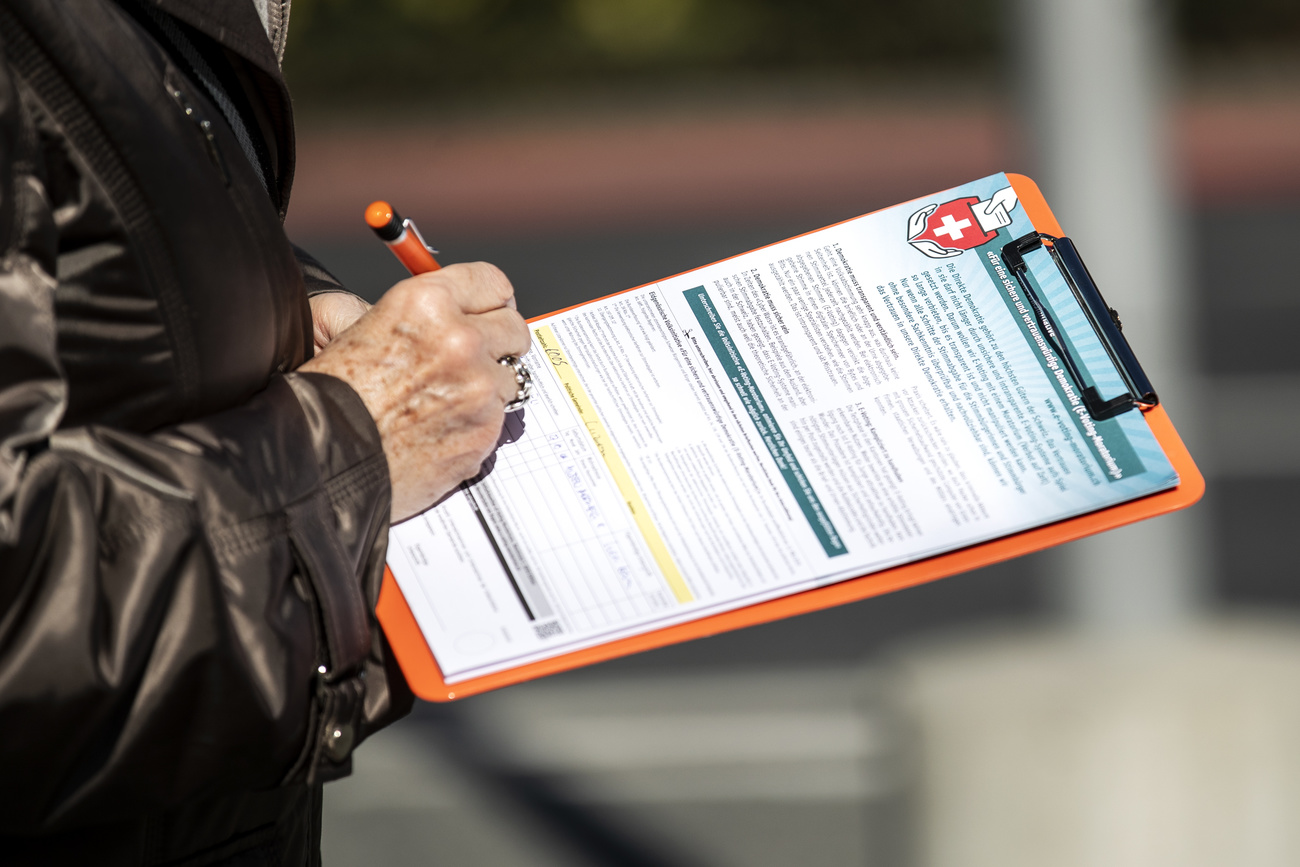
Switzerland to test electronic collection of signatures for referendums

The Swiss government is preparing the ground to authorise limited electronic signature collection trials for initiatives and referendums. The Federal Council (executive body) has adopted a report that envisages progressing in stages.
The analysis, requested by parliament, outlines the opportunities and risks of electronic signature collection in terms of organisational, technical, legal and institutional plans. The government has instructed the Federal Chancellery to conduct a preliminary project with a view to carrying out limited practical tests of electronic signature collection, according to a press release.
+ Get the most important news directly in your inbox
The current system for collecting signatures, based on paper, has potential for modernisation, says the report, which takes into account the recent cases of falsified signatures for initiatives at the federal level. In the context of the scandal, the Chancellery recently held a round table to ensure greater transparency in the collection of signatures.

More
‘Signatures scam’ reveals cracks in Swiss system
New risks
However, “the digital model presents new risks and its reliability and the trust that the public is willing to place in it depend to a very large extent on its design,” the Federal Council noted. A special focus should be placed on the control mechanisms that could be put in place without compromising the secrecy of the vote, the report continues.
Electronic voting also implies a partial transfer of competences compared to the current system. Responsibility would pass from the initiative committee to the operator of the collection platform, which would have to be entrusted to a public organisation. The municipalities will continue to keep voter registries and the collection of signatures on paper and in digital form will have to coexist.
The report concludes that it is impossible to determine the effects of the electronic collection of signatures on the use of civil rights without carrying out a practical experiment. The Federal Chancellery’s preliminary project will be done with the support of the cantons, municipalities, stakeholders from the political and civil society sectors and specialist groups.
Translated from French with DeepL/gw
This news story has been written and carefully fact-checked by an external editorial team. At SWI swissinfo.ch we select the most relevant news for an international audience and use automatic translation tools such as DeepL to translate it into English. Providing you with automatically translated news gives us the time to write more in-depth articles.
If you want to know more about how we work, have a look here, if you want to learn more about how we use technology, click here, and if you have feedback on this news story please write to english@swissinfo.ch.

In compliance with the JTI standards
More: SWI swissinfo.ch certified by the Journalism Trust Initiative

























You can find an overview of ongoing debates with our journalists here . Please join us!
If you want to start a conversation about a topic raised in this article or want to report factual errors, email us at english@swissinfo.ch.